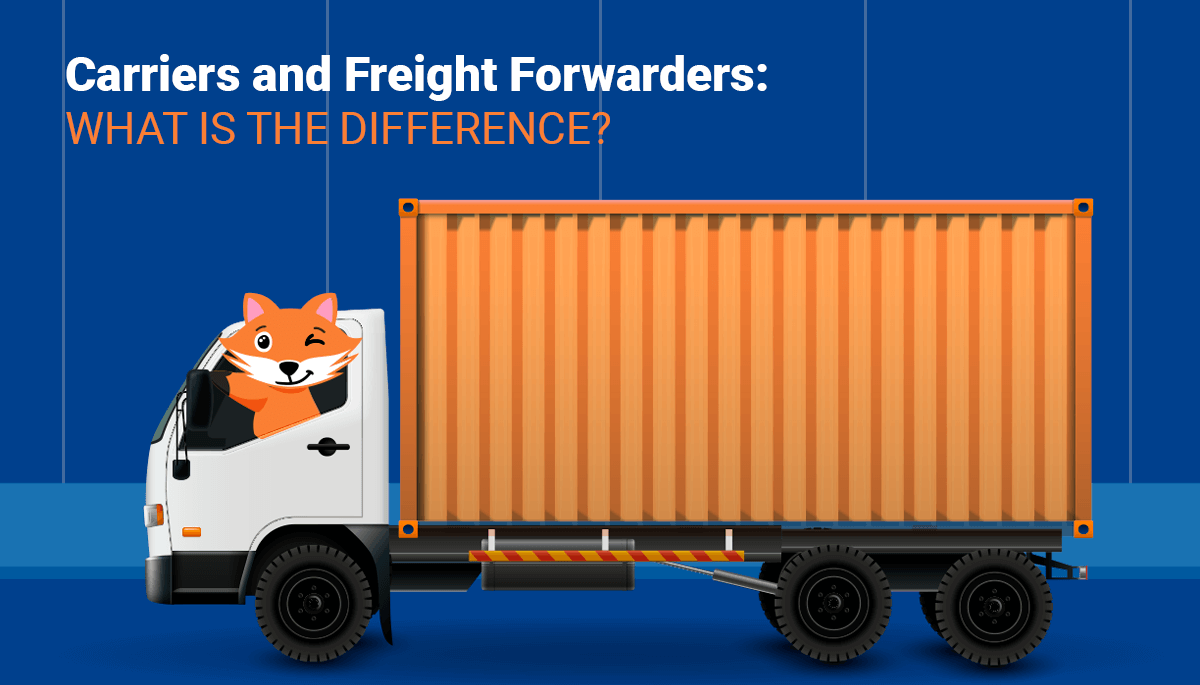Understanding the Differences Between a Carrier and a Freight Forwarder

Understand Logistics & Freight
In the complex world of global logistics and supply chain management, two key players often take center stage: carriers and freight forwarders. These entities play critical roles in ensuring that goods are transported efficiently and seamlessly from point A to point B. However, understanding the distinctions between them is crucial for businesses looking to optimize their supply chain operations. In this blog post, we will explore the differences between a carrier and a freight forwarder, shedding light on their respective functions and how they contribute to the logistics ecosystem.
What is a Carrier?
A carrier, in the context of logistics and transportation, is a company that physically transports goods from one location to another. These companies own and operate the vehicles, vessels, or aircraft needed to move cargo. Carriers can be broadly categorized into various modes of transportation, including:
1. Trucking Carriers: These companies primarily use trucks for ground transportation, making them a common choice for short to medium-distance shipments.
2. Ocean Carriers: Ocean carriers own and operate vessels for the transportation of goods across oceans and seas. They are vital for international trade and the movement of goods between continents.
3. Air Carriers: Air carriers specialize in the transportation of cargo via aircraft, offering rapid delivery services for time-sensitive shipments.
4. Rail Carriers: Rail carriers transport goods using trains, often used for long-distance and bulk transportation.
5. Intermodal Carriers: These carriers utilize multiple modes of transportation, such as trucks, trains, and ships, to move goods efficiently across various geographical areas.
What is a Freight Forwarder?
A freight forwarder, on the other hand, acts as an intermediary between shippers (companies or individuals looking to transport goods) and carriers. They play a pivotal role in managing the logistics of a shipment. Here are the key functions of a freight forwarder:
1. Logistics Planning: Freight forwarders plan the most efficient route and mode of transportation for a shipment, taking into account factors like cost, transit time, and the nature of the cargo.
2. Documentation: They handle the extensive paperwork required for international shipping, including customs documentation, bills of lading, and import/export permits.
3. Booking with Carriers: Freight forwarders negotiate rates and book cargo space with carriers on behalf of their clients. This ensures that goods are loaded onto the most suitable carrier.
4. Cargo Tracking: Freight forwarders provide real-time tracking and visibility into the status of shipments, allowing clients to monitor their goods throughout the journey.
5. Cargo Insurance: They can arrange cargo insurance to protect against potential losses or damages during transit.
Key Differences
1. Ownership of Assets: The primary distinction between carriers and freight forwarders is ownership. Carriers own and operate the physical means of transportation, while freight forwarders do not own transportation assets but coordinate the shipment process.
2. Responsibility: Carriers are responsible for the actual movement of goods, ensuring they reach their destination safely and on time. Freight forwarders focus on the logistics and documentation aspects, orchestrating the shipment process without physically moving the cargo.
3. Client Relationship: Shippers typically have direct relationships with carriers, whereas freight forwarders serve as intermediaries between shippers and carriers. Shippers often hire freight forwarders to simplify the logistics process and access their expertise.
4. Expertise: Freight forwarders specialize in navigating the complexities of international trade, customs regulations, and documentation. Carriers excel in the physical transportation of goods, optimizing routes and ensuring cargo safety.
In the intricate world of global supply chain management, carriers and freight forwarders are distinct but interconnected players. Carriers own the physical means of transportation and focus on the movement of goods, while freight forwarders specialize in the logistics, documentation, and coordination of shipments. Understanding these differences is essential for businesses seeking to streamline their supply chain operations and optimize their international trade processes. By leveraging the strengths of both carriers and freight forwarders, organizations can ensure the efficient and secure movement of their goods across the world.